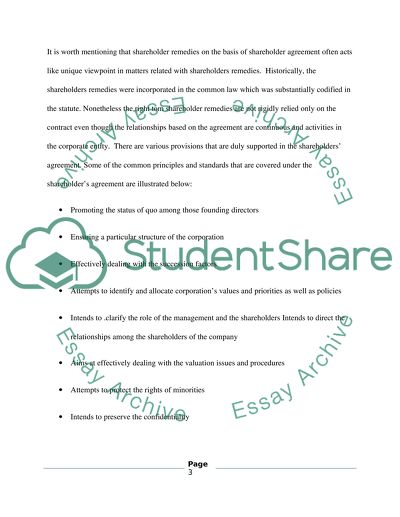Cite this document
(“What is the interaction between agreements between shareholders Research Paper”, n.d.)
What is the interaction between agreements between shareholders Research Paper. Retrieved from https://studentshare.org/miscellaneous/1618308-what-is-the-interaction-between-agreements-between-shareholders-whether-in-the-form-of-provisions-in-the-constitution-or-separate-shareholders-agreements-and-the-statutory-remedies-in-relation-to-oppression-and-winding-up
What is the interaction between agreements between shareholders Research Paper. Retrieved from https://studentshare.org/miscellaneous/1618308-what-is-the-interaction-between-agreements-between-shareholders-whether-in-the-form-of-provisions-in-the-constitution-or-separate-shareholders-agreements-and-the-statutory-remedies-in-relation-to-oppression-and-winding-up
(What Is the Interaction Between Agreements Between Shareholders Research Paper)
What Is the Interaction Between Agreements Between Shareholders Research Paper. https://studentshare.org/miscellaneous/1618308-what-is-the-interaction-between-agreements-between-shareholders-whether-in-the-form-of-provisions-in-the-constitution-or-separate-shareholders-agreements-and-the-statutory-remedies-in-relation-to-oppression-and-winding-up.
What Is the Interaction Between Agreements Between Shareholders Research Paper. https://studentshare.org/miscellaneous/1618308-what-is-the-interaction-between-agreements-between-shareholders-whether-in-the-form-of-provisions-in-the-constitution-or-separate-shareholders-agreements-and-the-statutory-remedies-in-relation-to-oppression-and-winding-up.
“What Is the Interaction Between Agreements Between Shareholders Research Paper”, n.d. https://studentshare.org/miscellaneous/1618308-what-is-the-interaction-between-agreements-between-shareholders-whether-in-the-form-of-provisions-in-the-constitution-or-separate-shareholders-agreements-and-the-statutory-remedies-in-relation-to-oppression-and-winding-up.


